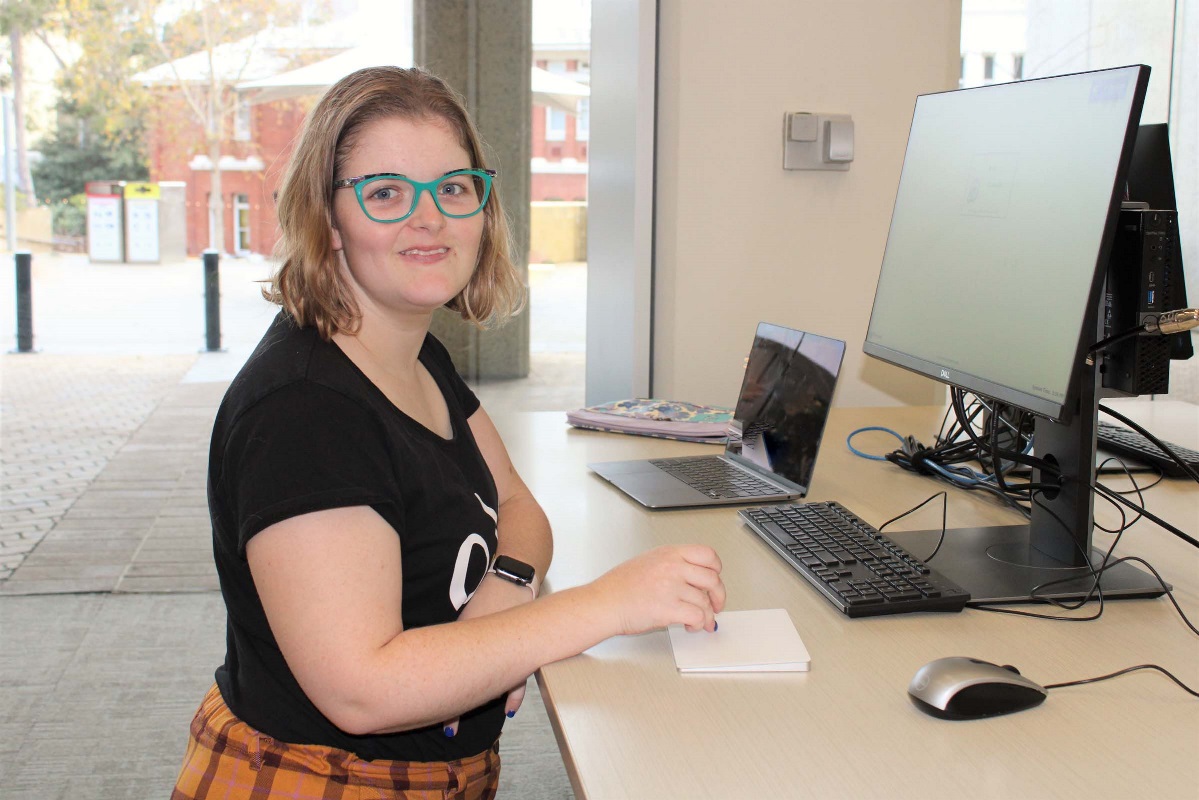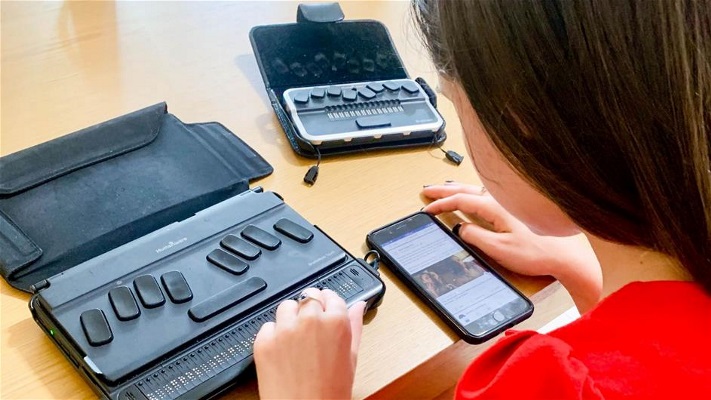Equal rights and a little bit
of AT access
In collaboration with My CP Guide
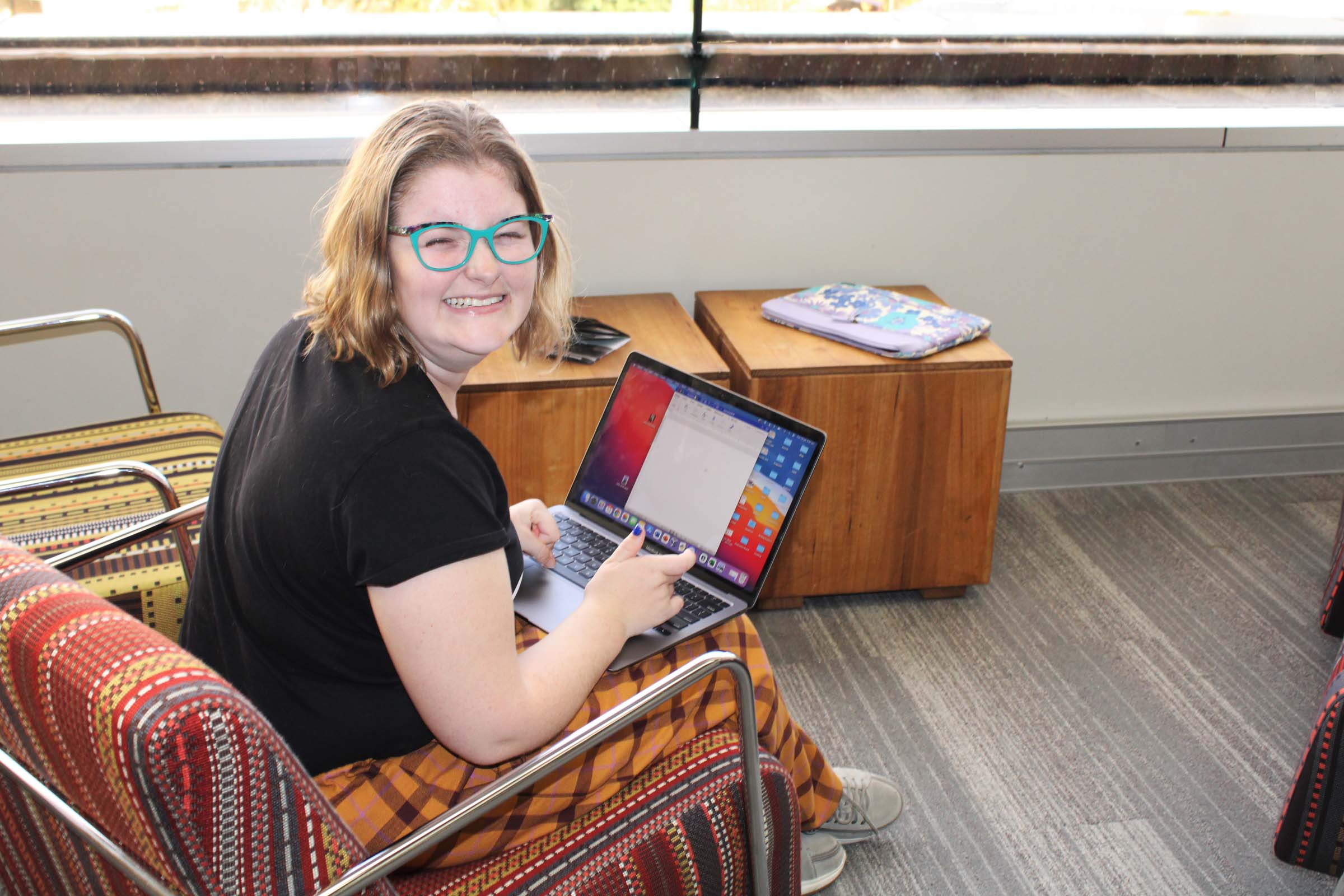
Equality and a little bit of access is the mentality of fierce and bubbly disability advocate Layne Dixon. Exhausted by the division between people with and without disability, Layne said *they (pro-noun of choice) believe that education is the key to changing things.
“More people need to get educated about disability and access, because it is not just physical access needs, it’s sensory issues, social and a lot of other things,” they said.
“All disability is not the same. Don’t think that access issues are just physical barriers, it’s a whole lot more than that.”
Layne is a bit of an AT enthusiast, and after discovering the AT to help them revive their love for literature and passion for writing, they said having the technology they used now would have changed everything about their studies in school.
“There were many social barriers between me and the non-disabled kids in high school,” they said.
“Having Cerebral Palsy, presented lots of challenges.”
School was tough.
Speaking candidly, Layne said there were only two students with physical disabilities at her school, and only a very few people with lived experience of disability in their year.
“I struggled to connect with people, and I wasn't able to connect with the wider social groups. I felt like I was invisible.”
Layne said their grades slipped and they got frustrated with their limitations, which they now understood as a lack of AT access.
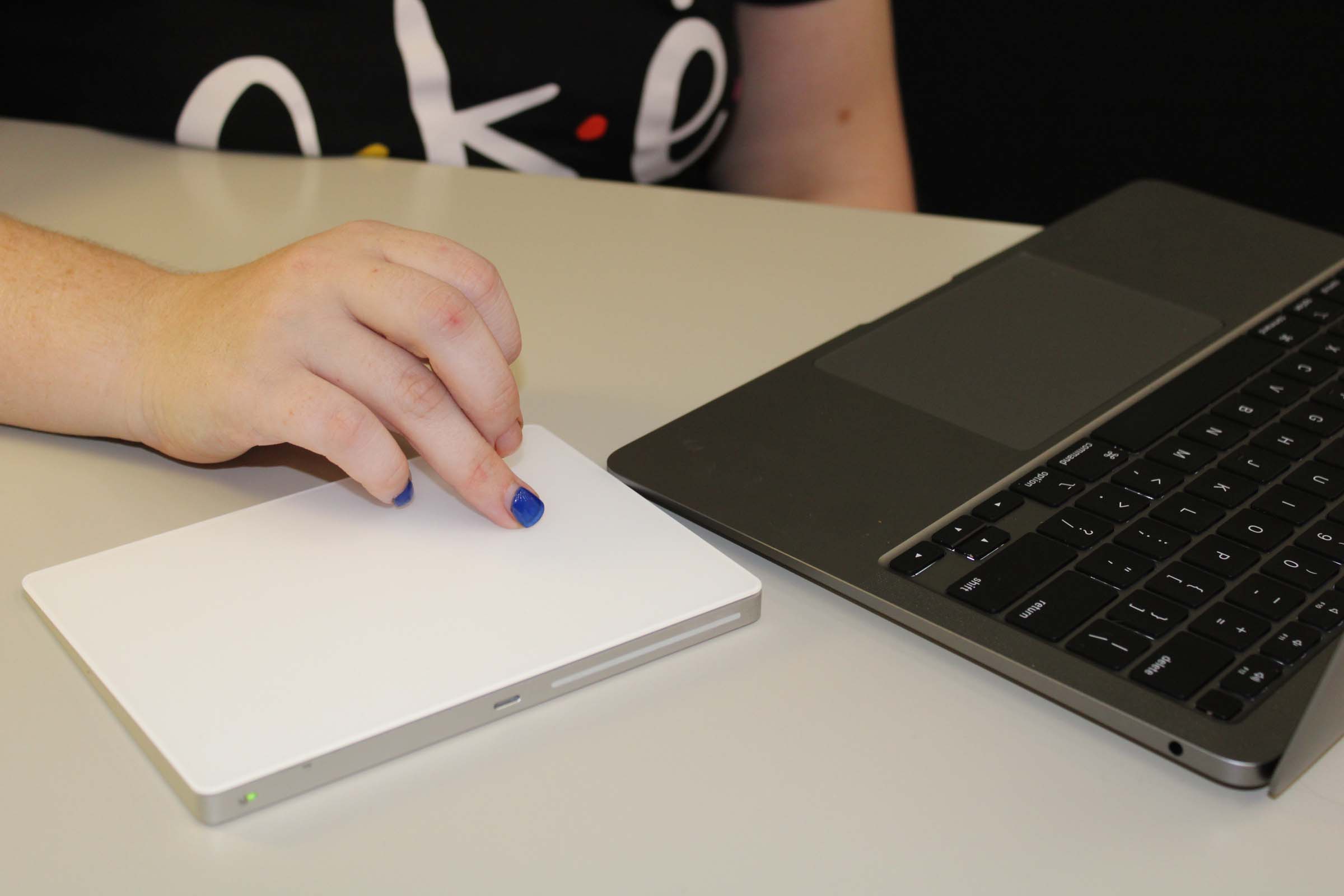
“My trackpad could have been used in my IT class in school to move more independently, instead of using just the mouse on my laptop,” they said.
“The AT that would have helped me with my English class would be audiobooks. I would have gotten far better results.”
“I prefer audiobooks over reading, as I struggled to put content into my assignments.”
Layne said their love of audiobooks increased their capacity to write; something which they were appreciative to learn about from their mother.
“Listening to inspiring and powerful stories through audiobooks, has helped me as a writer and completely changed my life,” they said.
Throughout their high school and TAFE experiences, Layne said they were given extra supports that helped them reach their potential in their schoolwork.
“I could do tests in another room so I could take more time and not get overwhelmed,” they explained.
“This meant I could take my time and have less distractions. I also had a study period during school time so I could catch up and have time away from the rest of the class. This helped my anxiety levels, so I could focus on the work.”
Empowerment through advocacy
Having such a hard time in school sparked a passion for Layne, where advocating for others became a way for them to use their voice, and for it to mean something outside of themselves. They found out about the Youth Disability Advocacy Network (YDAN), and they said their passion for advocacy had ignited.
“I saw the people at YDAN and I said OMG, how did I not know this earlier,” they said.
“Everyone at YDAN is special in their own way. The term ‘special needs’ is used too much. I hate it. Let’s take ‘special’ back. You’re treated that because of your disability, you’re not normal.”
“Why can’t society treat you like an able-bodied person, but with a little bit of accessibility.”
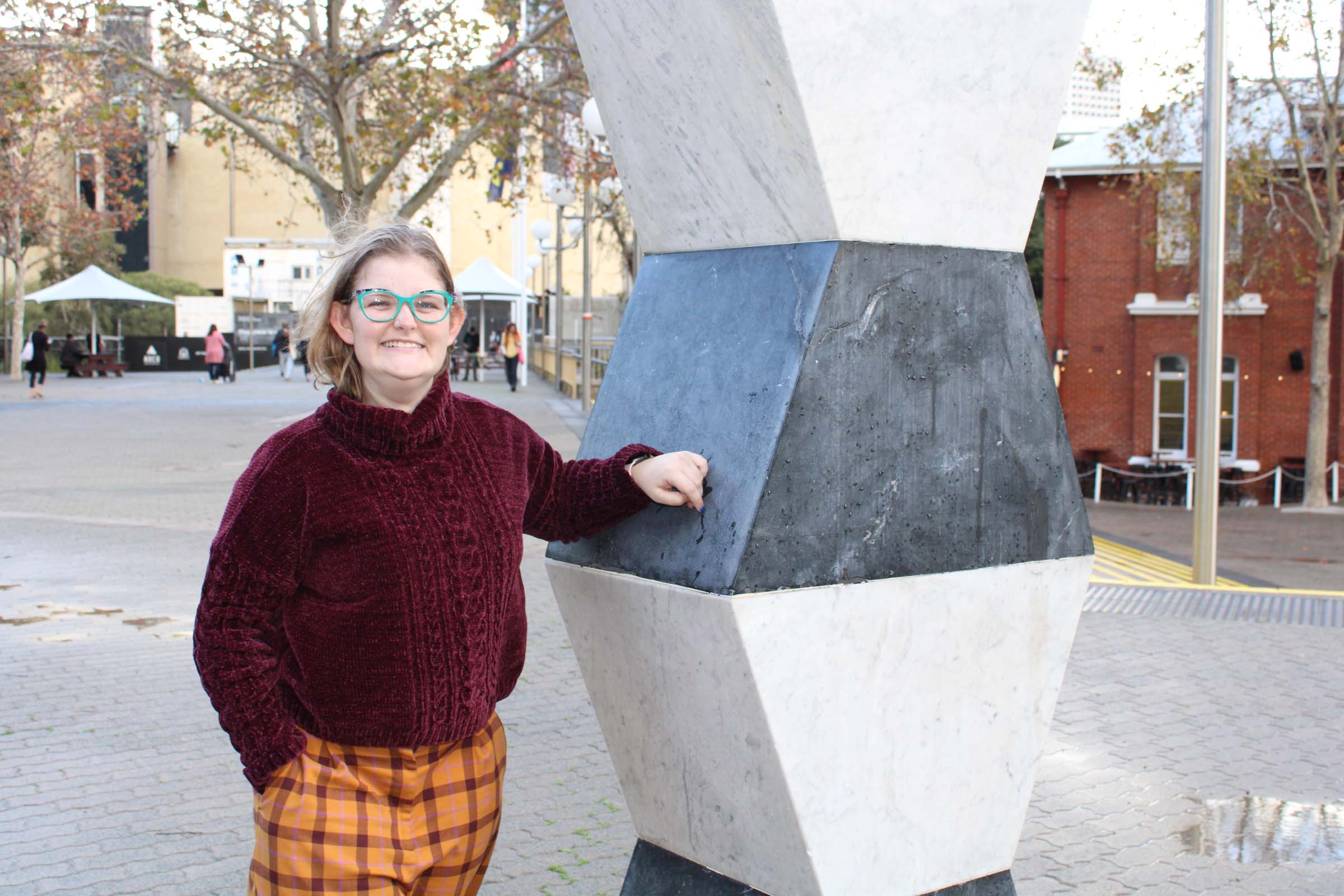
School just got fun
As Layne left high school behind, they said they began to get excited about what came next. Having spent several years writing and then building a blog to share their advocacy views online with their peers, studying Web Design at TAFE became something real and tangible she could focus on.
As a writer, Layne wrote beautifully, but struggled with broader comprehension, until a therapist recommended the software: Ghotit, which they have currently been using for the past year. Read more about Layne's AT for writing here.
“Ghotit has helped me with my spelling and comprehension, and it does my edits for me,” they said.
“It’s funny, because you can see how my writing has gotten so much better within one year of using the software.”
“Ghotit is so much easier for me, and I use it for pretty much all my blogs now.”
Independent adult (in progress)
Layne said as they transitioned to adulthood, they had struggled with feeling overwhelmed and overloaded with taking on too many tasks, so she approached her support worker to discuss a solution.
“My support workers helped me sort out my life through Google calendars, because my day was all over the place,” they said.
“It was really helpful, and I get reminders about everything I need to do so I don’t take on too much.”
“I was on 4-5 committees, and I also did some Comms work for YDAN, and now I’m on one. I had to give up the Comms work because it was too much for me. I had to be realistic about what I could and couldn’t do, and that AT helped a lot.”
Cooking has increasingly become an easier task for Layne, and she said with a smile when asked about whether she loved to cook, “I love to eat.”
“I have a Thermomix at home, and that has helped with the cooking. We have also had renovations in the kitchen where I have a lower bench for me to use,” they said.
Layne said they used Ubers for transport to get from place to place and often scheduled the night before to make sure they could get to her destination.
“My support workers help me get around too and when I started TAFE, and they took public transport with me and even sat in on my classes to make sure I could manage okay,” they said, with a smile.
Independence is…
Independence means something different to everyone and for Layne, they said she was lucky to be as independent and resilient as they were, but sadly, it wasn’t always the case for their peers.
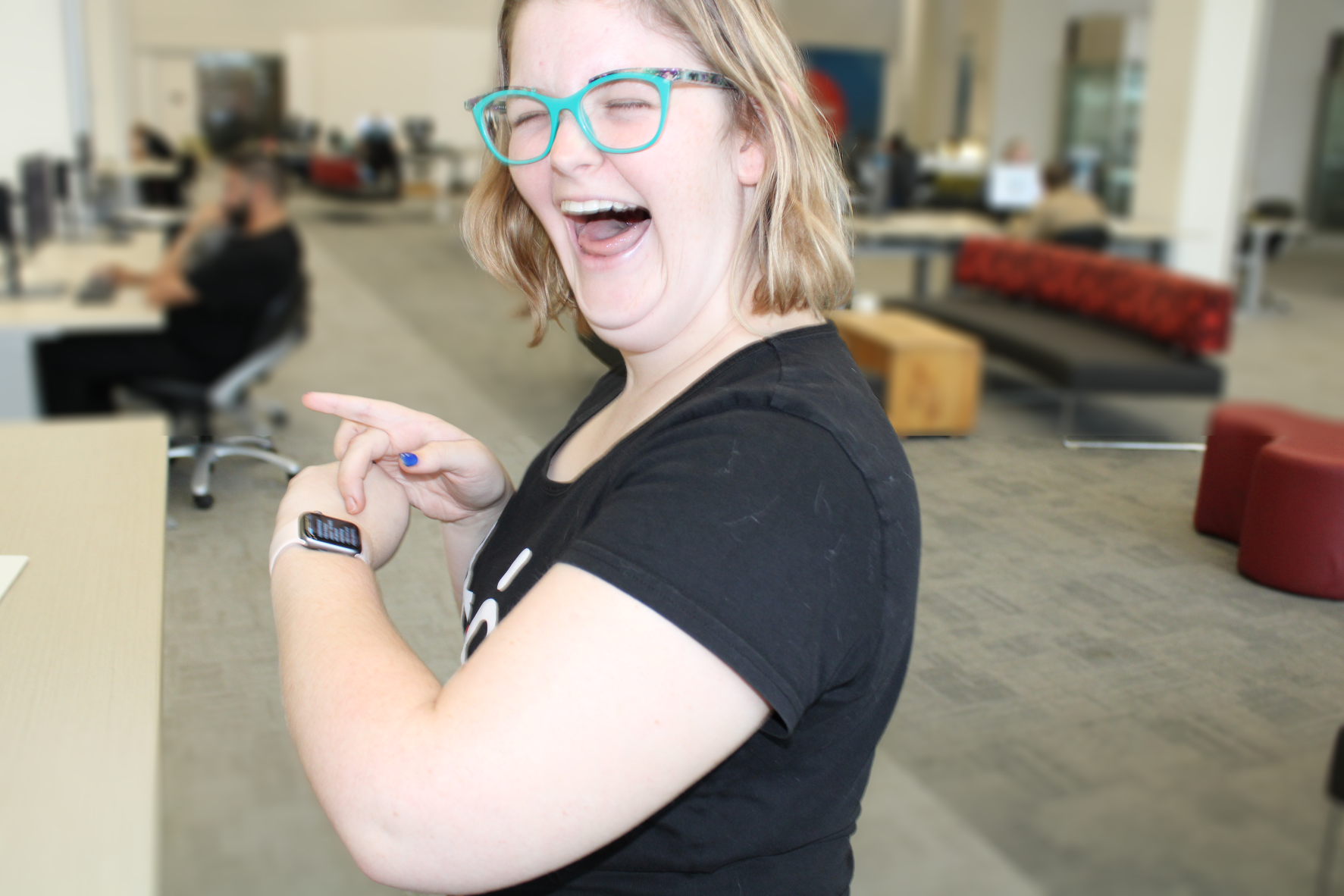
“My parents treated me like the other children, but with a little bit more assistance. My parents made sure I’m as independent as possible and that made all the difference as an adult,” they said.
“Not all parents of disabled children are treated like this.”
“I have many friends with disability that were bubble-wrapped by their parents, and it had such a big impact on their mental health, as the real world was a big shock.”
They said they were grateful to be raised the way they were, and it changed everything about the adult they were becoming and the life they were leading.
“Having your own say in life, means independence to me.”
“Look at what you’re passionate about and figure out a career pathway from there. Look into AT you can access, and above all things, do what you love, and not what your family want you to do or what you think is expected.”
“I would love to see one day AT be more well known within the wider community. Assistive technology isn’t just technology, which is adapted for disabled people, but AT can be anything that makes a person’s life easier.”
This is how Layne uses AT to live, play and work, and this is their AT story.
This article was co-written with My CP Guide.
*The pronouns they/them/their have been used to replace she/her/hers at the request of the talent.
Listen to Layne's live, play, work story here:
AT Featured in this story:
- Ghotit
- Apple Trackpad
- Smart phone
- Apple laptop
- Audiobooks
- iWatch
- Google calendar
- Thermomix
- Kitchen modifications
Other useful links:
- Sign in to your free AT Portal to discover more peer-led and co-produced AT articles and videos including: 'How I funded my Thermox' by Robyn Luke".
